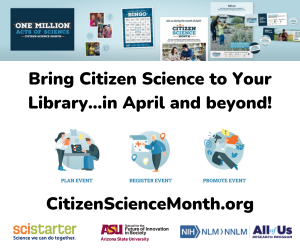Authors Bounce Back
BRENDAN DOWLING works for the Public Library Association in Chicago. Contact Brendan at bdowling@ala.org.
Brendan is currently reading Lush Life by Richard Price.
In keeping with this issue’s theme of fantastic failures, we turned to some of our favorite authors to see how they had navigated disappointments in their own careers. Their sympathetic yet heartening responses are below. To learn more about these authors and their creative process, visit PLA’s interviews page at https://publiclibrariesonline.org/category/books-more/interviews.
Imbolo Mbue
Imbolo Mbue is the author of Behold the Dreamers (2016), which was named a Best Book of the Year by The New York Times, The Washington Post, and The Guardian.
Three years ago, I received an email telling me that a renowned literary agent was going to read my manuscript. The email came from the agent’s assistant, who had read and loved the manuscript, and her enthusiasm for it (she called it “phenomenal”) all but convinced me that her boss was going to love it, too, and offer to represent it. I stared at the email for minutes, incredulous: after sending out hundreds of query letters to agents all over the country and receiving dozens of rejection letters, was it possible I was finally going to get an agent? Would this story, which I’d been working on for almost three years and which I deeply believed in, finally get published?
The day after I received the email I called a close friend.
“You won’t believe what just happened,” I said.
“What?” she asked.
“A top agent who represents a writer I admire is going to read my work!”
“I told you!” she shouted. “I told you! You’re going to have your book published and I’m going to have a friend who is a published novelist!”
I asked her to curb her enthusiasm and not tell anyone yet, lest we jinx it, but by the end of the day, she had told almost everyone at her job that her friend’s book was going to be published.
On March 31, 2014, the day the agent’s assistant had promised me would be the day her boss made a decision about representing me, I checked my email approximately sixty times every hour. I tried to work on my other writing but couldn’t focus. I wanted to go for a walk but couldn’t bear to leave my computer. I sat staring at it, waiting for the email. When it finally came in, around five in the evening, it wasn’t an offer of representation. It was a letter of rejection, the worst rejection letter of my career. The agent didn’t think she could represent my work, her assistant wrote, but she thought I had potential and she wished me the very best with my endeavors.
I closed my computer shivering—I’d never been so hot and cold all at once. The next morning I couldn’t get out of bed. When I finally did, I went grocery shopping and burst into tears in the checkout aisle.
“You can’t give up,” my friend said when I told her. “I know it hurts, but you came so close.”
What do you know about coming so close? I wanted to shout at her. What do you know about what it’s like to be inches away from the finish line only to have someone push you all the way back to the starting point?
I went to bed without eating dinner for a second night, but the next morning I woke up knowing my friend was right—I had to carry on.
So I went back to my computer and began rewriting.
Duncan Tonatiuh
Duncan Tonatiuh’s books include The Princess and The Warrior: A Tale of Two Volcanoes (2016), Funny Bones: Posada and His Day of the Dead Calaveras (2015), Pancho Rabbit and the Coyote: A Migrant’s Tale (2013), Diego Rivera: His World and Ours (2011), and Separate is Never Equal: Sylvia Mendez and Her Family’s Fight for Desegregation (2014). His books have received the Sibert Award, the Pura Belpré (Illustrator) Honor Book, and The New York Times Best Illustrated Children’s Book Award, among others.
Getting my first book published was relatively easy. A professor of mine that really liked my artwork was good friends with a children’s book editor and asked if she could show him some samples of my work. The editor, a man named Howard, liked my work and invited me to meet with him at his Abrams office. He told me that if he received a manuscript that suited my style he would get in touch. I told him I liked writing and that I was taking some writing classes in school. Great, he said, and told me some basic things about picture books.
Some weeks later I had the idea for a book about two cousins who write letters to each other; one cousin lives in a rural community in Mexico and the other lives in an urban center in the United States. I wrote the manuscript with rhymes, which I am not very good at, and sent it to Howard. He said very nicely that he liked the concept and illustrations and wanted to publish this book, but please, no rhyming. So I rewrote the manuscript and revised it several times until it became my first book, Dear Primo.
Half a year later, after I finished all the artwork for Dear Primo, I wrote another manuscript and sent it to Howard. But this time he said, “This is not the right project for us.” I had assumed anything I wrote would become a book. I sent several more manuscripts, but Abrams did not like any of them. I had spent my advance from Dear Primo by that point and had to take on different odd jobs to pay the bills. I walked dogs, babysat, painted houses, tutored, and assisted a photographer. I felt very frustrated to work at jobs just because I had to and not because I was passionate about them.
More than a year later, I wrote the manuscript for Diego Rivera. Abrams liked it and it became my second book. I still had to do other jobs to supplement my income but I felt re-energized and motivated. After publishing a couple more books, I could dedicate myself to being a full-time author and illustrator. The thing I know now that I did not know when I was getting started is it takes time to build a career. I get manuscripts turned down all the time, and I always have to make several major revisions to my work, but it is part of the process. I feel very fortunate that I get to do something I love for a living. I want to continue making books, and I hope I have a long and productive career.
Lindsay Hunter
Lindsay Hunter is the author of Ugly Girls (2014), listed as one of BuzzFeed’s Best Books of the Year, and Don’t Kiss Me (2013). Her next novel, Eat Only When You’re Hungry, will be released in August 2017.
When I graduated from college, I had a bachelor’s in English and a vague notion that I might like to be a writer. Ahem, a Writer. My favorite professor was a poet, so I assumed I was also a poet. Plus, it seemed poets had a lot more fun with words than prose writers did. (I knew it all at age twenty-two!) I had no idea how to get from point A, a young idiot who wanted to be a Writer, to point B, more famous than Stephen King.
I decided applying to graduate school was a thing I could do, and I proceeded to apply to eight of the most famous programs. I felt proud of my poetry, and at the very least I believed it was fun to read, so I was confident I’d start seeing acceptance letters rolling in. I peppered my personal essay with stuff I filched from the New Yorker (cough, I name-dropped Arshile Gorky, cough). It all felt kind of distant but satisfying, an accomplishment even, like it feels to finally go to the dentist. I was going through the motions, acting the part, faking it till I could make it.
I was rejected by all eight schools.
That, my friends, was a line in the sand. That was eight schools telling me they didn’t think I even had anything worth honing, nothing to offer, no promising starting place. It was like someone turned off all the noise, removed all the furniture, cleared all the clutter, and it was just me in my head—nothing to distract me but nothing to hold onto, either. What in the hell was I going to do?
My husband, who was then still my boyfriend, wrote me a letter in which he had pasted pictures of Carolina Panthers quarterback Jake Delhomme. The gist of his letter was that Delhomme went undrafted in the 1997 draft but went on to the Super Bowl in 2003. I was undrafted but I’d one day make it. You see why I married the man?
I realized I wasn’t trying to go from point A to B, I was trying to go from A to Z. In the empty room that was my head, I realized I didn’t know anything about anything. I might want to write fiction, too! I had to take it a lot slower. I had to figure out what I, what I, wanted to write. Did I even have anything to say? And that’s honestly something I ask myself to this day. From the moment I decided I wanted to be a writer to the moment my first book was published, a decade went by. I spent ten years taking little steps, saying yes to every opportunity, challenging myself to write the next thing, and the next thing, and the next… and never, ever name-dropping poor Arshile Gorky ever again.
Dave Reidy
Dave Reidy’s fiction has been published by Granta and other journals. His novel The Voiceover Artist (2015) was listed among Top Fall Indie Fiction titles by Library Journal and named a Midwest Connections Pick by the Midwest Independent Booksellers Association. Reidy’s first book, a collection of short stories called Captive Audience (2009), was selected as an Indie Next Notable Book by the American Booksellers Association and published in French translation.
The novel was supposed to change everything.
For several years, I had been rising early in the morning to write for an hour before hustling off to work a full day in a marketing agency. Despite the publication of my short story collection by a reputable press, I was an unknown, even in my hometown of Chicago. In short, my writing life was lived very much on the margins. The novel, though—if only in the mind of its author—was to deliver what the short story collection had not: a literary reputation and a reprieve, if only an impermanent one, from the stress and politics of office work.
My belief that the novel would change everything about my life was not rooted merely in the self-delusion required to write a book almost no one was waiting for. Indeed, something was different this time around: I had an agent.
When it was finished, I sent my agent the first draft of the novel. She had some deep concerns, but I had prepared myself for this disappointment. Who writes a publishable first draft of a debut novel? Not me. I started a full rewrite, one hour per day, six days per week, and kept at it for a year. Unfortunately, my agent didn’t like the second draft, either. I mulled over her thoughtful notes and did another rewrite. This time, my agent was certain: she didn’t see how she could sell this book, no matter how many characters I added or flourishes I deleted, no matter how many additional attempts I made to reconceive it. After three drafts and four years, the novel I had believed would change everything for me was dead in the water.
Though the agent was done with the novel, I found, to my surprise, that I wasn’t. I still wanted its characters at the center of my marginal writing life. So I did what writers do: I rewrote the thing again, and I revised what I rewrote. When I had done the very best I could do on my own, I sent the manuscript to other agents and editors. Enduring long silences and brief rejections, I felt the novel, for which I had imagined so much success, hanging around my neck, an albatross-esque emblem of my failure.
Eventually, all the writing and rewriting paid off, though not in the all-transfiguring manner I had once envisioned. My novel found a good home. After being carefully edited, exquisitely designed, noisily published, and nationally distributed, the novel began (or, perhaps, continued) to do all a writer should ask of a book-length fiction: it made small but meaningful changes in the life of its author and, with some luck, in the lives of a few generous readers open to such a remote possibility.
Ben Winters
Ben Winters’s books include Underground Airlines (2016), The Last Policeman (2012), Countdown City (2013), and World of Trouble (2014). His books have won the Philip K. Dick Award for Distinguished Science Fiction and the Edgar Award.
Like a lot of writers, it took me some time to figure out what kind of writer I was. I must admit, I was pretty far afield when I started.
The mistake, so clear in retrospect (and aren’t all mistakes?) was confusing who I am as a writer with who I am as a person. I presumed, in other words, that my persona as an author would be an extension of my personal style—but it’s not. My fiction, in books like Underground Airlines and The Last Policeman, is dark, philosophical, sad, meditative, and at times violent. My personality (I think—can we fairly evaluate our own personalities?) is upbeat, optimistic, funny, even silly.
For most of my life, my attempts at art manifested as extensions of that personality. In college I did improvised comedy, which I loved and was good at; later I dabbled in standup, which I loved but was terrible at; my first stab at professional writing was as a librettist and lyricist in musical comedy—I thought I was great at it, but theater critics generally disagreed. When I turned to fiction it seemed obvious to me that lighter forms would be my thing. My first published novels were both essentially silly: Sense and Sensibility and Sea Monsters (a parody novel and the sequel to Pride and Prejudice and Zombies, another author’s better and more successful novel); and The Secret Life of Ms. Finkleman, a zany middle-grade novel that HarperCollins Children’s published and that my mom read and liked very much.
Both of these books lean into that comedic, jokey part of my personal style, which I had extended into my theater-writing career and presumed would extend onto the page. They’re books I’m proud of (a good punchline isn’t easy!) but which were leading me into a career that was neither particularly artistically satisfying nor putting me on the professional map.
Everything changed when I started writing The Last Policeman, a detective novel that had at its center a “bit” that was not at all comedic: it’s a mystery set against the backdrop of impending apocalypse. Within the framework of that conceit, I found myself researching the structure of economies and civilizations, delving into complicated questions of fate and justice, and meditating on the meaning of life and the certainty of death. The work didn’t radiate out from my personal style but from something much deeper—my sense of the world, the things I thought about or wanted to know more about. The resulting book was an expression not of how I presented myself to the world, but of who I actually was. This has proved a better path, and it’s the one I’ve followed since.
Abby Geni
Abby Geni’s debut novel The Lightkeepers (2016) was named Best Fiction by the Chicago Review of Books Awards and longlisted for the 2016 Center for Fiction First Novel Prize. She is also the author of the short story collection The Last Animal (2013).
The first novel I published was not the first novel I wrote. After my short story collection, The Last Animal, came out in 2013, I spent months on a novel that I loved dearly. I crafted and polished and honed it, but despite all my efforts, it turned out to be fundamentally flawed. The structure was soggy in the middle, the plot was knotted, and the characters were too intense. Eventually I had to set it aside.
As a writer, it can be hard to let go of something you’ve made—especially a novel, which encompasses years of your life and hundreds of pages and thousands of words. To me, it felt a little like the death of a loved one. I had to bury my book, and then I had to mourn. I didn’t write for a few months. I didn’t even read. I avoided fiction in all its forms, since every story reminded me of the novel I had lost.
This kind of failure is essential to the writing process. I was devastated at the time, but in retrospect, I see how much I gained. Without first writing a book that was full of mistakes—a book I had to abandon—I would never have found my way to The Lightkeepers, my debut novel. In crafting a book that failed, I figured out a million things I would never have discovered any other way. I had to take each risk, to try and stumble and flounder. You can’t learn to write a novel by reading novels, or by reading about how other authors have written novels, or by reading short stories, or by writing short stories. You can only learn to write a novel by writing one.
Eventually I reconnected with some of my childhood joy in story making. I went back to the very beginning: sitting down to write without expectation. When I was a kid, I plunked down at the computer every day simply because I loved to write. I didn’t think about whether I would ever be published, whether my work would find an audience. I didn’t wonder about results, only process. Writing a novel that failed brought me back to the idea of writing for myself, writing without hope or calculation, writing because life is bigger and richer with stories in it.
In the end, I remembered a few home truths. All writing is practice. I’ve been practicing this work since I was a child, and I’m still learning how to be a better writer. The novel that failed was practice for The Lightkeepers, which was practice for my new book, Zoomania, slated to come out in 2018. Each story is practice for the next one. Every crumpled page in the trashcan is important work. Every mistake is an object lesson. I’m glad I wrote a four-hundred-page-long novel that no one will ever read. I wouldn’t give back one hour of my time, one sentence, one word.







